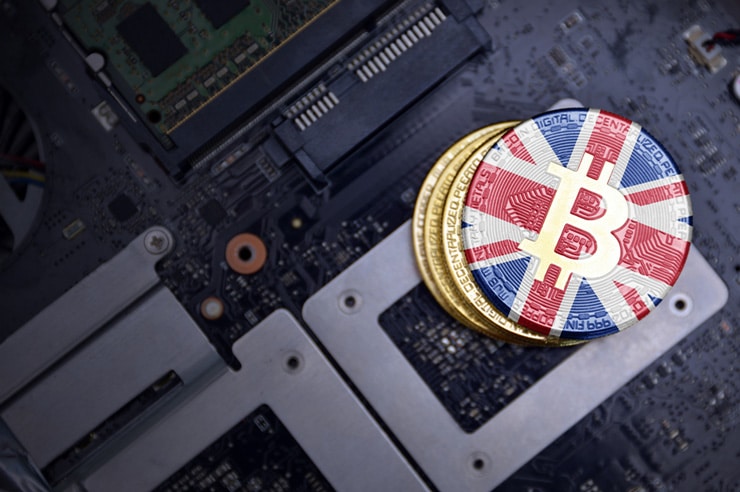2% Digital Tax on UK-based Crypto Exchanges Has Been Confirmed
04/12/2021 - 6 minutes readDigital Tax on Crypto Exchanges has been confirmed by HMRC in their latest update as cryptocurrencies such as Bitcoin are not commodities or money, and therefore they will not be exempt from the Digital Services Tax (DST).
Online cryptocurrency exchanges will be subject to the 2% levy of the digital services tax which has been designed to ensure tech firms such as Google, Facebook and Amazon pay more tax in the UK.

Cryptocurrencies do not qualify for an exemption granted to financial marketplaces because HMRC does not recognise cryptocurrencies as financial instruments.
No Exemption for the Crypto-asset Exchanges
HMRC’s update mentioned that there are a wide variety of crypto assets, each with different characteristics. Since cryptocurrencies do not represent commodities, financial contracts, or money, it is unlikely that crypto-asset exchanges can benefit from the exemption for online financial marketplaces.
Digital Service Tax came into force last year & it places a 2% sales levy on online marketplaces, search engines and social media services that have a global revenue of over £500m and UK sales of over £25m. The tax will remain in place until the OECD’s global 15% corporate tax rate comes into effect.
The UK’s bid to tax the cryptocurrency market by introducing a Digital Tax on Crypto exchanges is only one move in a global effort to tax the crypto market. Several countries have announced their intentions about introducing a digital tax on crypto exchanges if they haven’t done so already.
How Are Cryptocurrencies Taxed in the UK?
Tax on crypto assets is a frequently asked question these days due to the massive surge in popularity of Βitcoin. HMRC is to begin collecting data on holdings of cryptocurrencies from taxpayers it suspects of tax evasion and avoidance and this has been covered in a separate article here.
HMRC has the ability to obtain a full list of cryptocurrency holders by sending data requests to UK-based cryptocurrency exchanges and other financial organisations & it has exercised rights under International Treaties to request information from other tax administrations to obtain information held by crypto-asset exchanges and data holders outside the UK.
Letter From HMRC About Cryptocurrency
HMRC has confirmed that it will issue ‘nudge letters’ to known UK resident cryptocurrency investors who it believes may have underpaid tax on their cryptocurrency transactions.
If you have received a letter from HMRC about Cryptocurrency then this article provides information on what you should do next.
Records of Crypto Assets Transactions
Cryptoasset exchanges may only keep records of transactions for a short period, or the exchange may no longer be in existence when an individual completes a tax return.
The onus is therefore on the individual to keep their own records for each crypto asset transaction.
Records of crypto assets can be:
- – paper (cold) wallets containing the individual’s public and private keys
- – electronic (hot) wallets on devices
- – other records of their transactions and balances such as downloads of their wallet activity from a crypto assets exchange
- – hardware (cold) wallets looking like a USB, containing the individual’s public and private keys.
Cryptoassets are digital assets and as such all records in a wallet should show balances and transactions, either in full or via reference to a public blockchain. The individual’s access to fiat currency could come from:
- – the point of deposits into a bank account; and
- – use of a crypto asset Automated Teller Machine (ATM)
These are records which should also be kept and produced for an enquiry. They form part of the audit trail from acquisition to disposal and therefore evidence of any gains made.
Further details can be found on HMRC’s website here.
Over the last few years, the use of cryptocurrencies in the UK has been on the rise which has led to the Digital Tax on Crypto exchanges as a source for HMRC to generate more revenue.
Last week the FCA advertised a £500,000 contract which would allow third parties access to the authority’s internal platform that blockchain data – the contract also includes the work of coaching FCA staff about how they can spot criminals transferring money through decentralised financial networks.
This FCA platform aims to enhance the watchdog’s ability to analyse blockchain data and provide the capability to visualise the data.
How can MCL Accountants help?
Contact MCL Accountants on 01702 593 029 if you have any queries on the taxation of Cryptoassets, Digital Tax on Crypto Exchanges, if you have received a letter from HMRC about cryptocurrency or if you need any assistance with the preparation and submission of your business accounts or self-assessment tax returns to HMRC.
- ABOUT
- REQUEST A QUOTE
Ishan provides financial management, taxation and transactional advice to business entities of all sizes. His expert areas include statutory compliance, business taxation, personal tax & transactional processing and systems. Industry sectors include professional services, retail, hospitality and entertaining & media and advertising services.

0 Comments